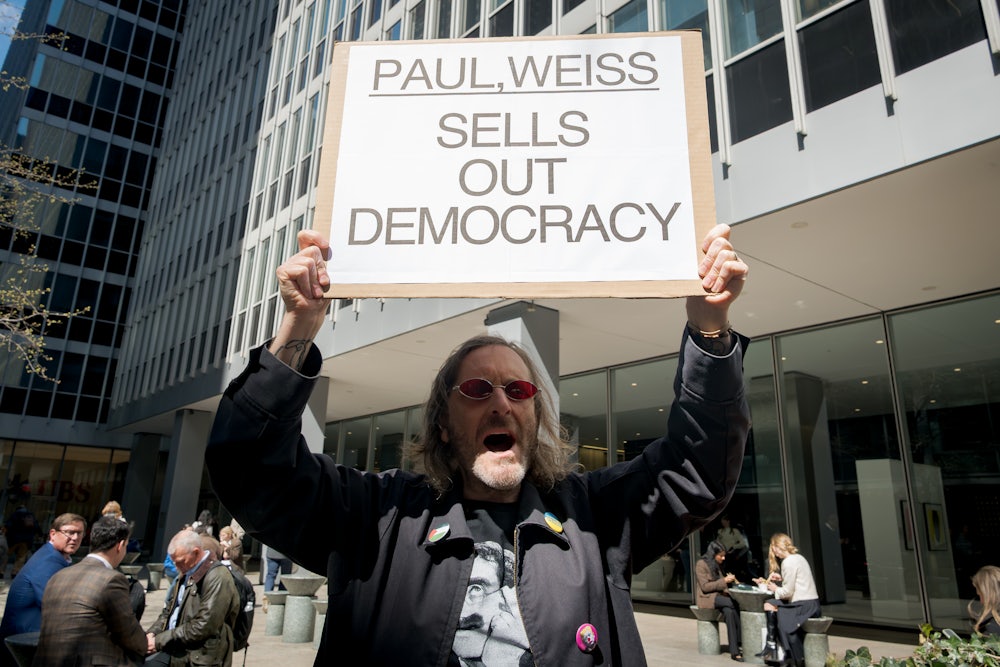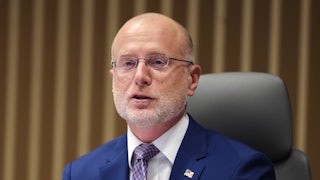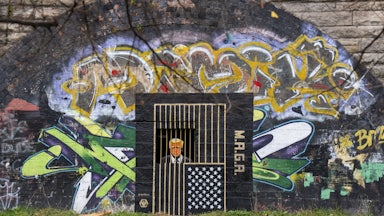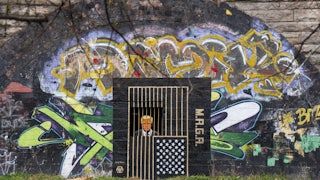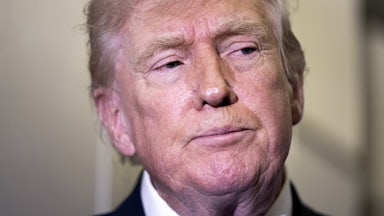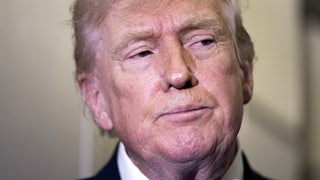Donald Trump’s unconstitutional assault on the biggest law firms has roiled the entire legal industry. The news from just Wednesday has one more big firm, Milbank, caving to Trump’s nasty leverage campaign, and ferocious criticism from law school deans, bar associations, and lawyers from the capitulating law firms, some of whom have quit in protest.
The turmoil is completely predictable, and it will continue. Trump’s attacks have forced firms to make the most pitched decisions between raw profit and the broader ideals of the legal profession that all lawyers have been exhorted to honor since their first year in law school. And the high-profile surrenders of now four of the country’s most profitable firms lay bare their true priorities.
Conversely, the decisions to fight back by three prominent firms—Perkins Coie, Jenner & Block, and WilmerHale—along with the public call to arms by Keker, Van Nest & Peters, led by legendary trial lawyer John Keker, stand as testaments to courage and principle under pressure.
The terms of surrender for the various capitulating firms varied somewhat, but in general they agreed to pony up from $40 to $100 million in pro bono legal services supporting Trump-favored causes, and to alter or discontinue their diversity, equity, and inclusion programs. And the price has been rising.
All of which delights our tyrant-in-chief, who gloated that the firms—which have been chosen for reasons having to do with Trump’s endless campaign of reprisal against perceived opponents—“are all bending and saying, ‘Sir, thank you very much. Where do I sign?’”
Notably, the firms that waved the white flag are among the most profitable in the country, better-heeled than all of the ones that dug in. They take in from about $4 million to $7.5 million per partner per year, with individual big rainmaker partners reportedly making up to $100 million.
It’s another bitter lesson in the greater vulnerability to Trump’s pressure on the part of the institutions that have ample financial wherewithal to resist. That’s the same dynamic that led to the knee-buckling of the Los Angeles Times, The Washington Post, and CBS and now has begun to be in play in the richest and most prestigious private universities, beginning with Columbia, which recently acceded to Trump’s demands.
It was Paul, Weiss’s surrender, personally negotiated at the Oval Office by firm chair Brad Karp, that set the crisis, and obloquy within the profession, in motion. It was in some ways the most craven because had the firm held the line, it would have made it that much harder for Trump to bring the others to their knees. And once they caved, that made it far easier for others to follow suit: It enabled Trump to divide and conquer.
The next big firm to yield was Skadden, Arps. Jeremy London, Skadden’s executive partner, wrote a convoluted email to the lawyers in the firm attempting to justify the decision. He explained that when the firm got wind of Trump’s intent to issue an executive order targeting Skadden over its pro bono work and DEI initiatives, “we were thoughtful and deliberate in determining the steps we might take.… As we considered our options, we were guided by our determination to uphold the significant commitments and responsibilities we have to our clients, our people, and to the broader communities and society we serve.”
Defending the decision to play ball, London then wrote, “We entered into the agreement the president announced today because, when faced with the alternatives, it became clear that it was the best path to protect our clients, our people, and our firm.”
Notice a missing element? London’s justification omitted any mention of “the broader communities and society we serve.” That’s no surprise, because it was precisely those broader interests that Skadden sold out.
None of this has been lost on Skadden’s attorneys, several of whom have left the firm in protest.
Announcing her departure on LinkedIn, Brenna Trout Frey laid into London’s email, which she disparaged as an “attempt to convince some of the best minds in the legal profession that he did us a solid by capitulating to the Trump administration’s demands for fealty and protection money.”
Most recently, Thomas Sipp, 27, quit the firm. His goodbye email to his colleagues said, “Skadden is on the wrong side of history. I could no longer stay knowing that someday I would have to explain why I stayed.”
That perspective—the day that we have to hope will come, and work for, when Trump’s authoritarian project has been defeated—is what’s completely lost on the capitulating firms.
Indeed, they are basically betting on Trump’s success in smothering the legal system as we know it. That’s the operating condition that will make their spineless wager pay off.
That’s not to say that the firms that are standing up for the rule of law will necessarily come out ahead. One of the most vicious aspects of Trump’s assault on civil society (as well as sectors of the federal workforce) is that it will impose great costs on the objects of his petty vengeance, however things turn out.
Thus, Perkins Coie, the first firm to fight back in court, is almost certain to prevail. The judge hearing the case already opined that Trump’s protection-money demand “sends little chills down my spine.” She added, “I am sure that many in the profession are watching in horror at what Perkins Coie is going through.”
But while the firm is likely to win in court, that won’t remove the scarlet letter Trump has planted on its forehead. Large clients are still likely to pause before retaining them for any matter involving the government, knowing of Trump’s animus. Trump’s enmity—100 percent undeserved and unrelated to any vaguely legitimate governmental purpose—imposes an existential crisis on the firm, notwithstanding its patent illegality.
But that just underscores Perkins’s—and Jenner’s and Wilmer’s—guts and dedication to principle. They are making the financial sacrifice that richer firms are petrified to make, and giving meaning to the chestnuts about the rule of law and dedication to the Constitution that the Paul, Weisses of the world recite but abandon when the pressure is on.
The legal industry is imperiled by a collective action problem. As John Keker, imploring law firms nationwide to stand with the firms and lawyers who resist Trump’s lawless assaults, wrote, “If we stand together and fight, we will win.” But each fat-cat firm that caves in response to Trump’s demands makes the next capitulation that much easier, and puts the whole industry more firmly under Trump’s thumb. And to the extent our democracy depends on a functional legal industry, that afflicts us all.
